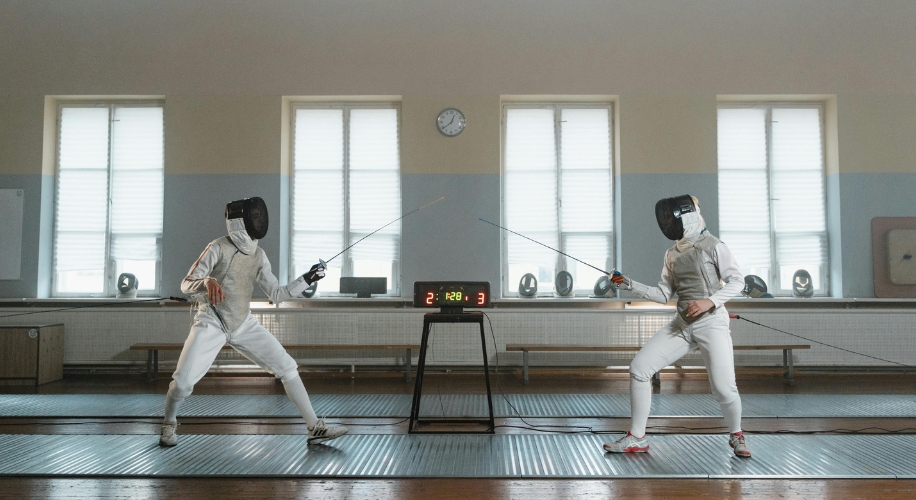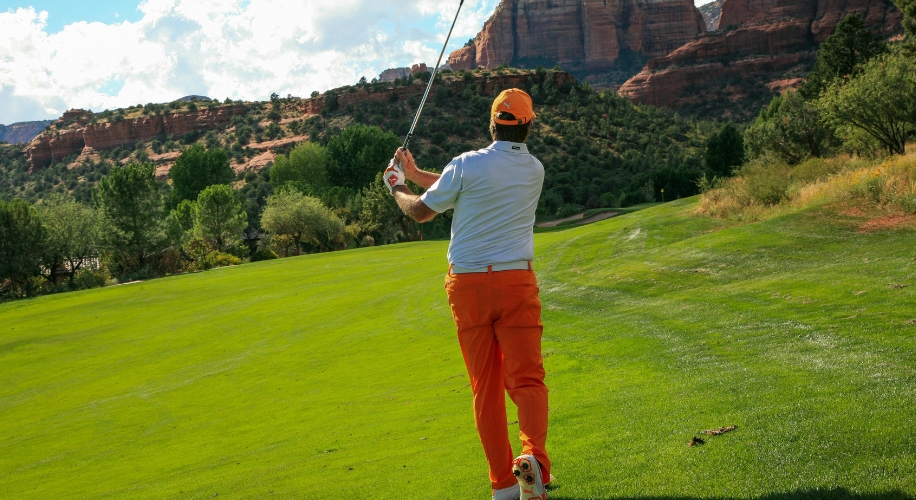Sharpen Your Vision in Fencing and Golf
- BY Dr. Steven Liem
- IN Eye Care
In both fencing and golf, precision is paramount. While these Olympic sports may seem worlds apart—one a high-octane duel with swords, the other a leisurely stroll with clubs—there’s more in common than meets the eye. Let’s dive into how vision impacts performance in fencing and golf and what athletes can do to ensure their eyesight is up to par.

Photo by Tima Miroshnichenko
The Role of Vision in Fencing
Fencing is often described as a physical chess match. It requires quick thinking, rapid reflexes, and precise execution.
Perception and Reaction Time
In fencing, the ability to read your opponent’s movements is critical. Fencers must detect subtle changes in their opponent’s stance, the direction of their attack, and the timing of their strikes. This requires exceptional peripheral vision and quick reaction time. A fencer with sharp vision can spot these nuances faster, enabling them to anticipate and counter attacks more effectively.
Depth Perception
Depth perception is crucial in fencing. It allows fencers to judge the distance between themselves and their opponent accurately. This ability is essential for executing attacks and defending effectively. Misjudging distance can result in a missed strike or an ineffective parry. Therefore, fencers with keen depth perception can better control the engagement distance and improve their overall performance.
Visual Acuity and Focus
Fencers need to focus on multiple elements simultaneously—opponent’s movements, the position of their own blade, and the overall match dynamics. Sharp visual acuity helps fencers maintain focus on these elements without getting distracted. For example, clear vision helps in making split-second decisions about whether to advance or retreat during an engagement.
Photo by Tom Jackson
The Importance of Vision in Golf
Golf, though less fast-paced than fencing, also demands precise visual input for optimal performance.
Reading the Green
One of the most critical aspects of golf is putting, which involves reading the green. Golfers must analyze the slope, grain, and texture of the green to judge how their ball will roll. This requires a keen eye for detail and an understanding of subtle visual cues. A golfer with excellent vision can better interpret these factors, leading to more accurate putts and improved scores.
Distance Judgment
Distance control is crucial in golf, whether it’s selecting the right club or gauging how much force to apply to a swing. Accurate distance judgment relies on visual assessment. Golfers need to gauge the length of the fairway, the position of hazards, and the distance to the hole. Effective visual skills help in choosing the right club and executing the perfect shot.
Swing Mechanics
The mechanics of a golf swing involve precise visual feedback. Golfers need to monitor their swing path, clubface position, and ball contact. Good vision helps golfers make adjustments to their swing in real time, ensuring better contact with the ball and improved accuracy.
Tips for Enhancing Vision
Whether you’re a fencer or a golfer, maintaining and improving your vision can enhance your performance. Here are some tips:
- Regular Eye Exams: Regular eye exams are essential for detecting and correcting any vision issues. Ensure that your prescription is up-to-date and address any visual impairments that could impact your game.
- Proper Eyewear: For fencers, prescription eyewear can protect against accidents while allowing clear vision. Golfers might benefit from sunglasses designed to reduce glare and improve contrast on the course.
- Visual Training: Engaging in visual training exercises can improve your reaction time, depth perception, and overall visual acuity. Exercises that enhance hand-eye coordination and peripheral vision can be particularly beneficial.

Photo by tyler hendy
Vision is a vital element in both fencing and golf, influencing everything from tactical decision-making to precise execution. Whether you’re lunging in a duel or lining up a putt, clear and sharp vision will always be a key to achieving your best performance.


